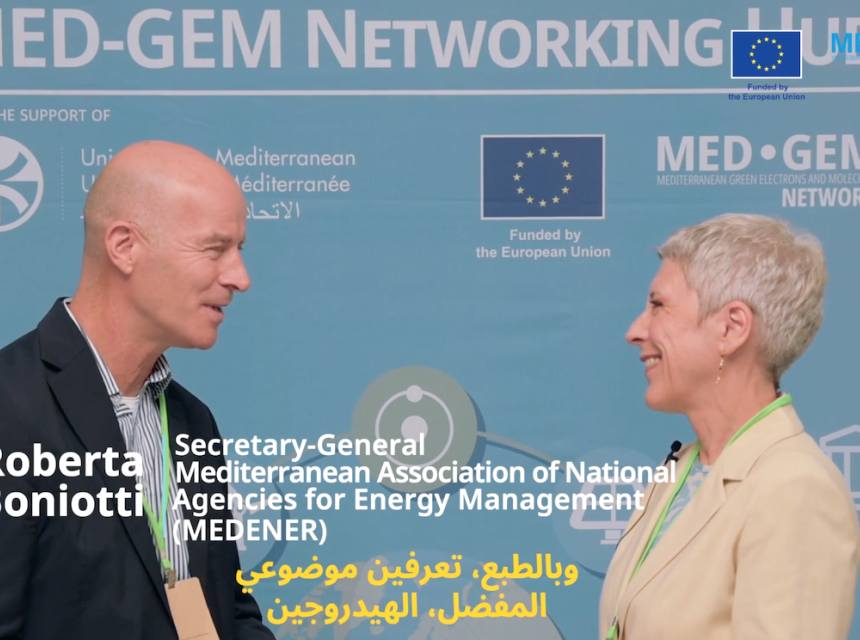MEDENER and the Mediterranean's Green Hydrogen Ambitions
At the first-ever Mediterranean Green Week in Istanbul (May 16th, 2024), Frank Wouters, director of MED-GEM, engaged with Roberta Boniotti, Secretary-General of Mediterranean Association of National Agencies for Energy Management (MEDENER), to discuss the burgeoning hydrogen economy in the Mediterranean region.
📺 Watch on YouTube with Arabic Subtitles
Roberta Boniotti, representing MEDENER and ENEA, the Italian National Agency for New Technologies, Energy, and Sustainable Economic Development, highlighted the concerted efforts of 13 Mediterranean nations to advance the hydrogen economy. With a focus on both the northern and southern shores, excluding Egypt which collaborates through RCREEE, the coalition aims to foster expertise and share experiences. Countries like Morocco, Algeria, Tunisia, Jordan, Palestine, and Lebanon are pivotal in this cross-border collaboration, aiming to harness hydrogen's potential for a sustainable future.
Hydrogen Valleys: Laying the Groundwork
One of the central themes discussed was the concept of hydrogen valleys—geographical areas where hydrogen production, storage, and utilization are integrated. Mrs. Boniotti emphasized that these initiatives are in their nascent stages, requiring significant investment and robust technological solutions. Italy's Hydrogen Demo Valley, funded through the EU's Recovery and Resilience Plan, serves as a blueprint. This model combines public funding with strategic national investments, underscoring the importance of demonstrable success in convincing financial stakeholders of hydrogen's viability.
Funding the Green Revolution: A Collective Effort
A recurring challenge in the conversation was financing the hydrogen economy. Mrs. Boniotti acknowledged that while initial investments are substantial, the economic model is still proving its worth. Currently, public funds dominate the financing landscape, with contributions from the European Union and International Financial Institutions (IFIs). The creation of a Hydrogen Bank is a step towards pooling resources, yet private sector engagement remains crucial. Demonstrating the feasibility and profitability of hydrogen projects is essential to attract diversified funding streams.
Sector-Specific Innovations: From Ports to Airports
She shared insights into sector-specific hydrogen applications, particularly in transportation. The collaboration extends to creating hydrogen-powered trucks, ships, and even sailing boats, with notable projects at the Port of Valencia and European airports. These high-technology readiness level (TRL) projects are pivotal in addressing the technical challenges and proving hydrogen's efficacy in hard-to-abate sectors. Such innovations are essential to drive market acceptance and regulatory support.
Accelerating the Transition: Challenges and Progress
The discussion concluded with a reflection on the pace of progress. While advancements have been significant, Mrs. Boniotti conceded that the transition is inherently slow due to existing investments in conventional energy sources. Nonetheless, the recent years have seen an acceleration in hydrogen projects, signaling a positive trend. Continuous efforts in demonstration, technological development, and stakeholder engagement are vital to maintain this momentum.

